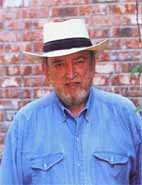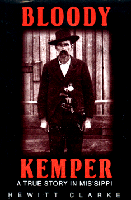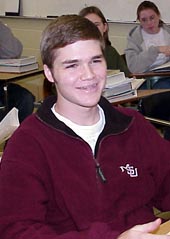Major Works
- Dark Secrets (2017)
- Money and Blood (2012)
- Mississippi Blood (2008)
- Wild Times, A Tale of Two Cities, Meridian and Dekalb (2008)
- The East End Tea Room (2005)
- War Stories from Mississippi (2004)
- He Saw the Elephant (2000)
- Thunder at Meridian (1995)
- Bloody Kemper (1998)
Biography of Hewitt Clarke
By Andy Collins (SHS)
Hewitt Clarke was born in Montgomery, Alabama, on July 7, 1931. He later moved to his father’s hometown, Meridian, Mississippi, which was where he grew up.
He graduated from Meridian High School and then went on to Ole Miss. While a student at Meridian High School, he wrote for the school newspaper, which is what first got him interested in writing.
After graduating from Ole Miss, he became a special agent in the Army Counter Intelligence Corps in Korea and Japan, collecting information about the Communist party. Back home he then started work in the insurance industry, moving many times until he moved to his current home in Houston, Texas.
His first book, Thunder at Meridian, begins by telling the story of Alabama Mingo, the chief of a Choctaw village and goes all the way through the Civil War and Reconstruction, telling the stories of a Confederate soldier, the Ku Klux Klan, and bootleggers. Clarke spent twenty years researching and writing this book.
In the mid 1990’s he decided to quit his job in the insurance industry and become a full time writer. Since then he has written the books Bloody Kemper, He Saw the Elephant, and The East End Tea Room.
Clarke has a wife and two daughters. His hobbies today include tennis, hiking, camping, canoeing, astronomy. Every five years he goes on expeditions which have included mountain climbing and running with the bulls in Spain.
Reviews
A Review of He Saw the Elephant
by Andy Collins (SHS)
He Saw the Elephant by Hewitt Clarke is an excellent book about Lt. Charles Read of the Confederate States Navy. It is the true story of Read’s adventures and misfortunes as he bravely battles the Union navy. He was usually outnumbered, but he had the courage and knowledge to make up for it. Lt. Read was from Mississippi and his tombstone in Meridian reads: “With a crew of 17 he captured and burned 22 Union ships in 21 days and struck terror across the eastern seaboard.”
He Saw the Elephant tells about the hardships and everyday life of the Confederate soldiers in the South, especially the navy, and the fighting that went on between the northern and southern navies. It primarily focuses on the battles fought by Lt. Read and his crew, telling how Read “ran the gauntlet” in the CSS Arkansas with more than thirty-seven Union ships firing on his ship. He destroyed many Union Ships with a very small crew.
If you are interested in the Civil War and are southern, I recommend this book. If not, this book may not be for you due to the fact that it is from a southern point of view. As far as I’m concerned this is a good book, filled with action and excitement all the way to the very end.
A Written Interview with Hewitt Clarke (2002)
by Andy Collins (SHS)
Are any of your books, even though fiction, somehow based on your life or someone you know?
All my books are non fiction and based on real people involved in the story. I am in some of the books only as an observer, mostly in the Epilogues about how I obtained information.
Who is your favorite author?
Hemingway. I have a grand daughter named Brett Ashley, a character from Hemingway’s book The Sun Also Rises, a lot which take place in Pamplona, Spain during the bull running. I like his adventures and descriptions.
What author do you think has influenced you the most?
Maybe Mitchner with his epic historical fiction stories; and I learned a lot from Ann Rule who writes non fiction true crime about how to quote dialogue at the right time from witnesses involved in the story; and the wit and style of Joseph Wambaugh who writes cop books. Got a recent note from a reader who said the East End Tea Room compares to Wambaugh’s The Onion Field, one of his nonfiction murder books. A real good compliment.
Why did you decide to write about Lt. Charles Read as the subject of your book He Saw the Elephant?
While researching the Civil War period for Thunder at Meridian, I came across Charles Read several time; then I learned he was buried in Meridian. That gave me an excuse to put him in the book. I think that Savvy Read was one of the most daring and competent naval officers in the history of naval warfare. His adventures are almost unbelievable. I felt he deserved a book if anybody in the Civil War did.
How long did it take you to write He Saw the Elephant?
It took two years of research and writing. By the way I think the term “I saw the Elephant” may have come from as far back as Hannibal when he crossed the Alps on elephants and the Romans told about it in Rome.
What kind of student were you in high school?
I was an average student, not studious, raced cars down the streets, etc., lucky to be alive, and I paid the price when I got to college because I had not learned the discipline of studying.
Have you received any awards?
No. Two of my books was nominated for non fiction Civil War book awards, but didn’t make it.
Do you have any advice for future writers or for students today?
There are not many Faulkners or Hemingways around who can write brilliant fiction. I would say stick to nonfiction stories from your own area, especially at first. You will at least have local people interested in your stories. Find something dramatic like a murder or bank robbery and develop the story from newspapers, court records, police records and first hand interviews with people still living. Maybe Atoka’s Choctaw trial in Columbus in the early 1800s. See Thunder at Meridian. Write and rewrite. Stick with it as you learn to write. I write about history now, but never liked it in school. Thought it was too dry and remote.
How has Mississippi or living in Mississippi influenced your writing?
All four of my books are about Mississippi. The state is very interesting to me because the people and traditions haven’t changed much over the years, and there is still a deep South country culture. My Yankee wife sometimes doesn’t understand when I tell people that I’m a gen-uine Mississippi redneck. But I have recently been disturbed about a revision of history that claims the Civil War was over slavery and the attacks on the state flag. I’ve written a lot about this in my last two books.
When will your new book be published?
In two or three years.
What hobbies do you have besides your adventure every five years?
I’ve played tennis off and on. Like to camp and hike and go down rivers in canoes and rafts. I’m interested in astronomy and attend sky observation outings.
When did your interest in the Civil War begin?
My interest in the Civil War began at an early age, maybe 10th or 11th grade. I have always been a Southern patriot and have a photo of me with a Confederate flag on top of Mt. Whitney.
Have you ever had any major setbacks to your writing career?
Some books sell better than others and sometimes it’s hard to figure. I’ve read that over half of the books published don’t make a profit. I haven’t had any real problems like somebody shooting at me so far, but have had several plenty mad at me. I’ve got my fingers crossed.
What do you like most about writing?
I like the creative part of it, and to be honest I like to see my name on a book in the store.
Why did you move to Texas?
I didn’t like California at all and came to Texas for an insurance job.
Related Websites
- Hewitt Clarke’s web site includes brief descriptions of all his books.
- Hewitt Clarke’s Facebook Page
- Faces in the Crowd: Hewitt Clarke. Houston Chronicle, 2005
Hewitt Clarke on Meridian Mississippi History (2013) at Clarksdale
Bibliography
- Clarke, Hewitt. E-mail Interview. 5 December 2002.
- Clarke, Hewitt. He Saw the Elephant. Spring, TX: Lone Star Press, 2000.
- “Lone Star Press.” <http://www.rebelwriter.com> (11 December 2002).




